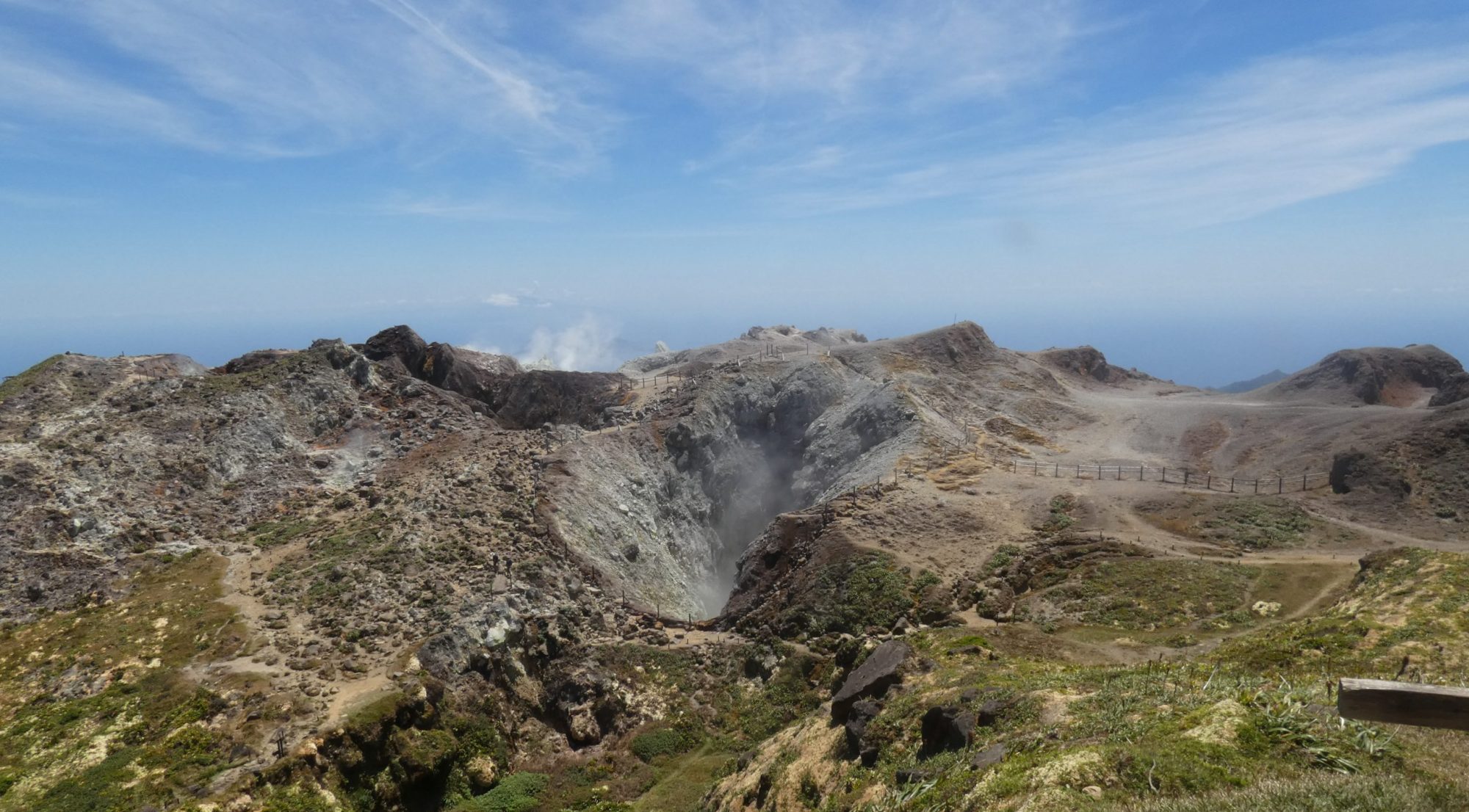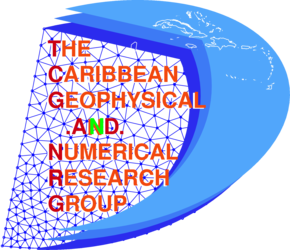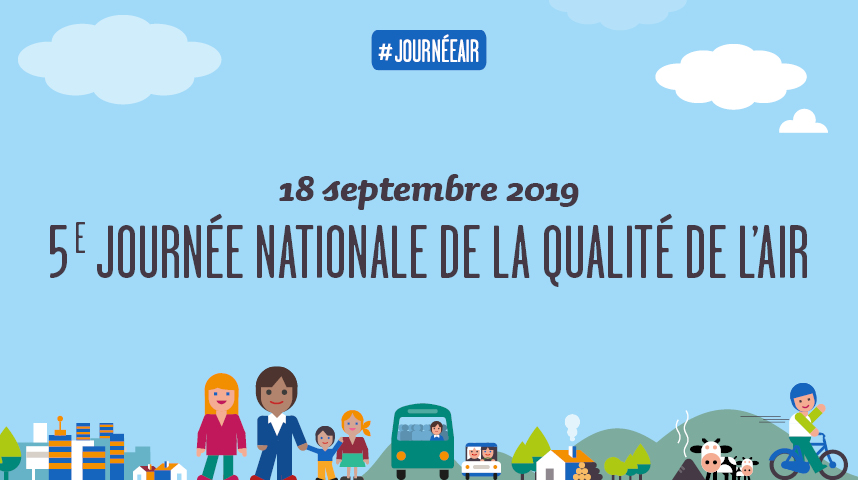
France is celebrating its National Air Quality Day on 18 September under the auspices of the Ministry of Ecological and Solidarity Transition.
The quality of the air to a minimum of three essential elements :
- we live permanently in the atmosphere, apart from short passages in liquid media, between 0 and 15km above the surface of the water (atmospheric boundary layer), our skin and most of our mucous membranes are in permanent contact with the air and these compounds;
- we must inhale at least 10 to 30 thousand litres of air in a day to produce the energy needed for life using available oxygen;
- High concentration and diversity of fine particles and airborne molecules in air mostly composed by nitrogen (78%), oxygen (21%) and other gas.
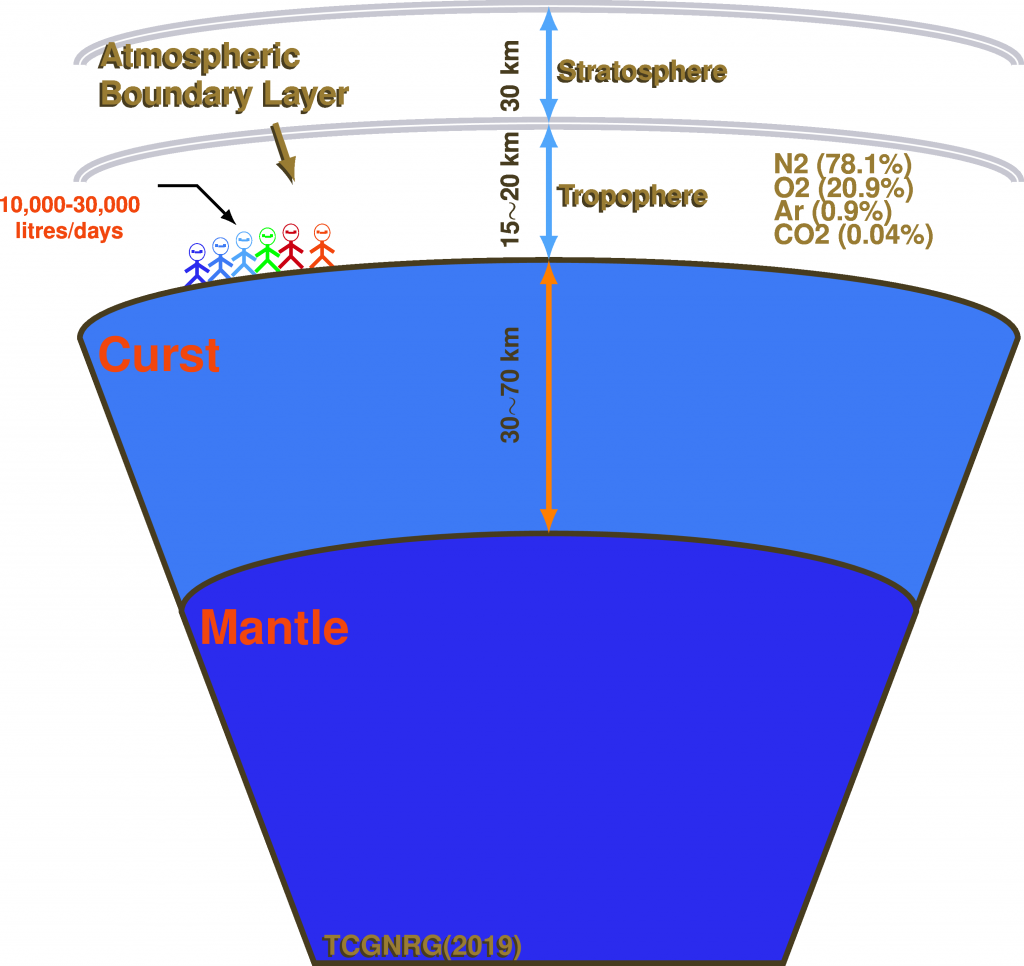
Human activities, geological (volcanism), meteorological (sand haze) and biological (fermentation of wet packed algae) in amount of other can perturb air quality over more or less long period.
In order to qualitatively and quantitatively assess quality of the air in which we move and we breathe, index have been put in place.
It is
based on the determination of a value or a colour indicating the
quality compared to a normal air or the risk related to particular
particles or molecules.
In front of the considerable number of particle, the indices group several sees all the pollutants.
The atmospheric index (ATMO index) used in France takes into account Ozone (O3), Sulphur dioxide (SO2), Nitrogen dioxide NO2 and PM10 (particle up to 10 micrometres in diameter). Future evolutions predict the use of PM25.
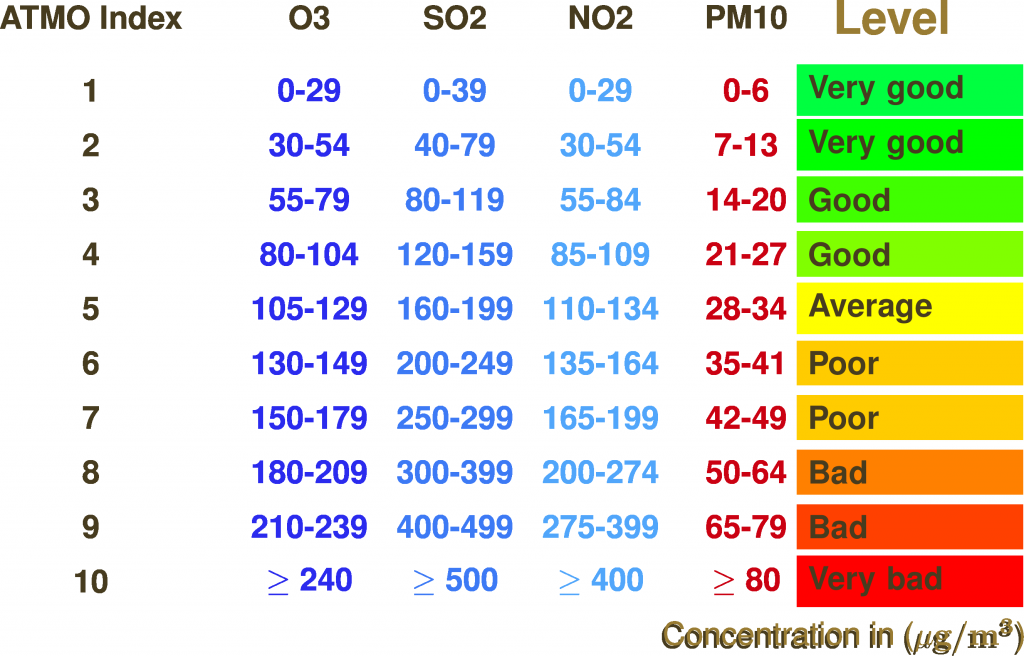
The information of the air quality must be correlated with our behaviour.
Placed in a rubbish bin all aware human being will seek to extract itself quickly, except special mission. An atmosphere of poor quality should be avoided.
It is therefore unfortunate that the information on atmospheric indices is not clearly required to avoid immediate risk behaviours such as smoky plumes from charcoal smokers (a large producer of fine particles) or run along roads and motorways at the end of the day at busy times.
Talking about situations that are not palpable enough (i.e., not visible or too far away) does not allow the conceptualization of pollution, makes the notion too abstract and does not allow the acceptance of behaviour that has a strong impact on lifestyles and the economy. But ensures a better, healthier, more peaceful and less violent life.
Information, especially the one which was worked to produce index, means something and must be understood and accepted. TCGNRG participates in this understanding and awareness with the help of adapted training, advices and atmospheric modelling and human behaviour, do not hesitate to contact us for more information.
Atmospheric Index at worldwide scale : https://waqi.info/fr/
